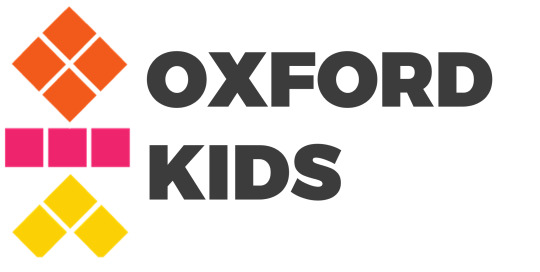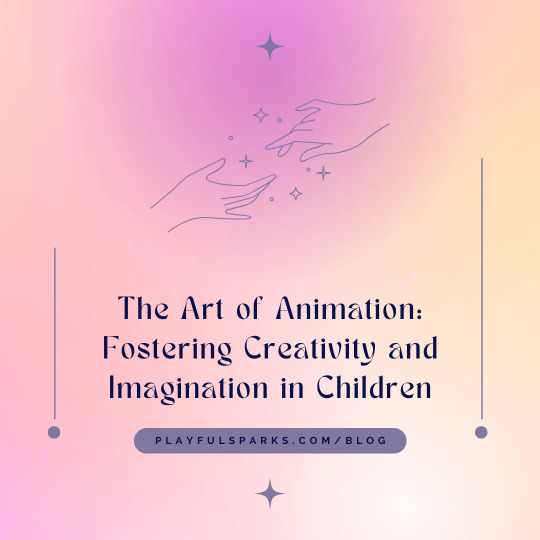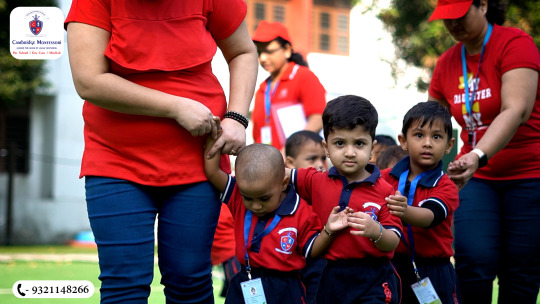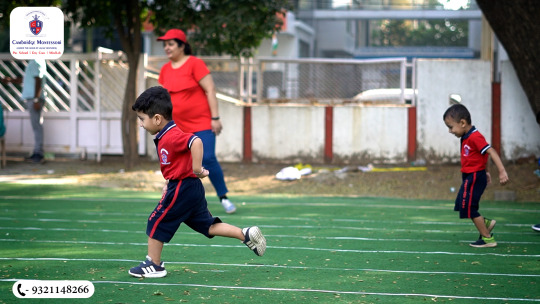#playfullearning
Explore tagged Tumblr posts
Text
Nursery school in Aurangabad | Littile wonder nursery school
#LittleWondersNurserySchool#AurangabadNurserySchool#PreschoolAurangabad#PlayfulLearning#NurturingEnvironment#HolisticDevelopment#EarlyChildhoodEducation
2 notes
·
View notes
Text
#KidsLearning#ToddlerActivities#PreschoolLearning#FacePartsActivities#EarlyChildhoodEducation#InteractiveLearning#FunWithKids#CreativeActivities#ParentingTips#EducationalPlay#LearningThroughPlay#HomeschoolingIdeas#KidsEngagement#PreschoolActivities#PlayfulLearning#funforkids#kidssongs#nurseryrhymes#childrensmusic#singalong#childdevelopment#familyactivities#learningthroughmusic
1 note
·
View note
Text
How to Make the Most of a Play Group Worksheet

A Play Group Worksheet can be an essential tool for a child’s early education. Designed to build foundational skills, these worksheets help children practice and understand new concepts in a structured, fun way. But to get the most out of these worksheets, it's essential to approach them thoughtfully. Here are some practical tips to help you make Play Group Worksheet effective and enjoyable for your child.
1. Choose Age-Appropriate Worksheets
When selecting a play group worksheet, make sure it's suitable for your child’s age and learning level. For a preschooler, look for worksheets that focus on basic shapes, colors, alphabets, and numbers. Avoid complex tasks, as they may overwhelm young children. Starting with age-appropriate worksheets will help your child build confidence and enjoy learning.
2. Set a Routine
Routine plays a significant role in developing learning habits. Setting aside a regular time each day for completing worksheets can make learning a comfortable part of your child’s routine. Whether it’s in the morning or after lunch, stick to a time that works best for your child’s energy levels. This way, the worksheet becomes a daily activity that your child looks forward to.
3. Create a Fun Learning Environment
Children learn best in a relaxed and fun environment. Make sure that the space where you do worksheets is comfortable, well-lit, and free from distractions. Add some of your child’s favorite coloring supplies and make the learning space inviting. When children feel at ease, they are more willing to engage and concentrate on their worksheet activities.
4. Use a Variety of Worksheets
Incorporate different types of play group worksheets to keep learning exciting. There are worksheets that focus on tracing lines, matching objects, identifying colors, or counting. By rotating these, you can ensure that your child doesn’t get bored and that they’re continuously learning a variety of skills. It’s important to maintain interest so that your child stays motivated.
5. Encourage Hands-On Interaction
While the worksheet is the primary tool, using objects around the house can add a hands-on experience to their learning. If the worksheet involves counting, for example, you could bring in toys, crayons, or blocks for your child to count. Hands-on learning reinforces concepts and makes the activity more engaging.
6. Celebrate Small Successes
Positive reinforcement goes a long way in building confidence. Whenever your child completes a worksheet or successfully solves a task, celebrate it! This could be through a high-five, a sticker, or even a small treat. Celebrating small successes will make your child feel proud and eager to try the next worksheet.
7. Give Your Child Time and Patience
Learning takes time, and each child has their own pace. Avoid rushing your child through the worksheet, as this may cause stress or frustration. If they make mistakes, offer gentle guidance and encourage them to try again. With patience and encouragement, your child will improve over time.
8. Combine Play and Learning
Play group worksheets should be fun, so try to combine them with play. For example, if your child is doing a worksheet on colors, you can find a game that involves identifying colors around the room. Learning through play helps children stay interested and connects their worksheets to real-life experiences.
9. Stay Involved
Take an active part in the worksheet activities by sitting with your child, explaining instructions, or guiding them through challenging sections. Being involved shows your child that you value their learning time, and it allows you to understand their strengths and areas where they may need more support.
10. Encourage Curiosity and Questions
Children are naturally curious, so encourage them to ask questions while working on their play group worksheet. If they’re curious about why something is a certain color or shape, use that moment as a learning opportunity. Answering their questions helps build knowledge and keeps them engaged in the task. It’s also a good way to spark deeper interest in the topics they’re learning about.
11. Adjust Worksheets to Match Your Child’s Learning Style
Every child learns differently. Some are visual learners, some do best with hands-on activities, while others might respond well to listening or verbal interaction. Observe your child’s preferences and adjust how you approach the worksheets. For example, if they’re visual learners, choose colorful worksheets with pictures. If they’re kinesthetic learners, combine the worksheet with physical activities, like asking them to trace letters or shapes in the air. Adapting worksheets to fit their style will make learning smoother and more enjoyable.
12. Set Small, Achievable Goals
For young children, completing an entire worksheet in one go can be challenging. Break down the tasks on the worksheet into small, manageable goals. For instance, if the worksheet has several sections, encourage your child to complete one section before taking a short break. This approach builds their focus and stamina over time without overwhelming them.
13. Reinforce Concepts with Real-Life Examples
One of the best ways to make the lessons on a play group worksheet stick is to connect them to real life. If they’re learning about colors on a worksheet, point out different colors in objects around the house or during a walk outside. If they’re working on counting, have them count their toys or snacks. Reinforcing worksheet concepts with real-world examples helps solidify understanding and shows them how their learning applies beyond the paper.
14. Be Flexible with Time and Effort
Not every worksheet session has to be the same length or involve the same level of effort. Some days, your child might be excited and ready to learn, while other days, they may need more encouragement. Don’t worry if they don’t complete the worksheet in one sitting. It’s okay to set it aside and come back later. The goal is to build positive learning experiences without pressure, so go with the flow and adjust based on their needs.
15. Encourage Creativity and Personalization
Allowing your child to get creative with their worksheet can make the activity feel special. For example, let them color in parts of the worksheet or add little drawings where it’s appropriate. Adding a creative touch makes the worksheet feel like “theirs” and gives them a chance to express themselves while learning. When children feel a personal connection to their activities, they’re more likely to enjoy and remember them.
16. Use Praise and Constructive Feedback
When your child does well on a worksheet, make sure to acknowledge their effort and progress. Praise them for specific things, like tracing lines neatly or recognizing shapes correctly. Constructive feedback is also important; gently guide them if they struggle with a task, focusing on encouragement rather than correction. Let them know that mistakes are a part of learning, and praise their perseverance in trying again.
Final Thoughts
Using a play group worksheet effectively can support your child’s early development in a meaningful way. By choosing the right worksheets, setting routines, and creating a positive environment, you’re not only teaching them essential skills but also fostering a love for learning. Make each worksheet session enjoyable, celebrate their achievements, and watch them grow confidently with every activity.
0 notes
Text
youtube
#CountToTen #AnimalFriends #FunWithAnimals #KidsSongs #LearnToCount #NurseryRhymes #PlayfulLearning #KidsEntertainment #SingAlong #FamilyFun #DanceWithAnimals #EducationalSongs #HappyCounting #ColorfulAnimals #JoyfulLearning
#CountToTen#AnimalFriends#FunWithAnimals#KidsSongs#LearnToCount#NurseryRhymes#PlayfulLearning#KidsEntertainment#SingAlong#FamilyFun#DanceWithAnimals#EducationalSongs#HappyCounting#ColorfulAnimals#JoyfulLearning#Youtube
0 notes
Text






Top On Sale Product Recommendations! Magical Tracing Workbook Control Training Book Reusable Magic Practice Copybook Children Montessori Drawing Education Stationery Original price: USD 2.17 Now price: USD 2.08 Click&Buy:
#MagicWorkbook#TracingFun#MontessoriMagic#KidsDrawing#ReusablePractice#EducationStationery#CreativeKids#LearningThroughPlay#ArtForKids#MagicPractice#DrawingAdventures#FunWithLearning#KidsArtStationery#MontessoriLearning#CreativeMinds#TracingMagic#KidsCrafts#ArtisticJourney#LearningIsFun#PlayfulLearning#KidsEducation#MagicCopybook#DrawingSkills#ParentingWin#KidsActivities#CraftyKids#InspireCreativity#LearnAndPlay#ArtisticExploration#FunWithArt
0 notes
Text

Learning is fun, and fun is learning! Striking the perfect balance between work and play!
0 notes
Photo

Hello School font is a vibrant and playful type inspired by the joy of learning, featuring six bright colors and carefully designed characters perfect for school-themed projects.
Link: https://l.dailyfont.com/2DoPl
#aff#education#learning#school#kids#fun#teach#study#students#teachers#classroom#backtoschool#newsemester#freshstart#studytips#learnwithus#playfullearning#colorfulfont#vibrantdesign#inspiredlearning
0 notes
Text
The Power Of Learning Through Play

Learning through play has long been recognized as a powerful tool in education, helping children essential skills and knowledge in a fun and engaging way. Research has shown that incorporating play-based learning activities into educational settings can have numerous benefits for learners of all ages. One study conducted by the American Academy of Pediatrics found that play is essential for healthy brain development in children. Through play, children learn to think critically, problem solve, and develop and emotional skills. Play also helps improve communication skills, creativity, and cognitive abilities. One real-life example of the effectiveness of play-based learning can be seen in the Reggio Emilia approach, an educational philosophy that emphasizes the importance of child-led, experiential learning. In Reggio Emilia schools, children are encouraged to explore their interests through hands-on activities and play, fostering a love of learning and creativity. So how can educators and parents incorporate play-based learning into their teaching practices? Here are some practical tips and examples to get started: 1. Use games and puzzles to teach math and language skills. For example, counting games can help children learn basic math concepts, while word games can improve vocabulary and language skills. 2. Encourage imaginative play by providing children with open-ended toys like building blocks, art supplies, and role-playing props. This can help children develop creativity, problem-solving skills, and social skills. 3. Incorporate outdoor play into learning activities. Take children on nature walks to teach them about the environment, or set up a sensory exploration station where children can touch, smell, and explore different materials. 4. Use technology to enhance play-based learning. Educational apps and online games can make learning fun and engaging, helping children develop digital literacy skills while learning academic concepts. By incorporating play-based learning activities into educational settings, educators and parents can help children develop the skills and knowledge they need to succeed in school and beyond. So next time you're looking for a fun and effective way to teach, remember the power of learning through play.
https://youtube.com/shorts/LWnbPZ8SHyo?si=eEbqguP5knH0aS0L
1 note
·
View note
Text
Unleashing the Magic: Why Letting Kids Be Kids through Play is Essential

In today’s fast-paced world filled with academic pressures and structured activities, the value of play often gets overlooked. However, play is not just a way for children to pass the time — it is an essential component of their physical, emotional, and cognitive development. In fact, experts emphasize that play is crucial for children’s overall well-being and future success.
Play is a natural and instinctive behavior for children. It is how they explore the world around them, make sense of their experiences, and develop essential skills. Whether it’s building forts with blankets and pillows, pretending to be superheroes, or engaging in imaginative role-play, play allows children to express themselves, experiment with different roles, and unleash their creativity.
One of the most significant benefits of play is its role in promoting physical health. Active play, such as running, jumping, and climbing, helps children develop strength, coordination, and motor skills. It also contributes to their cardiovascular health and reduces the risk of obesity. By encouraging outdoor play and providing opportunities for physical activity, parents and caregivers can support children’s overall health and well-being.
Play is also vital for social and emotional development. Through play, children learn to navigate social interactions, negotiate conflicts, and develop empathy and cooperation. Playing with peers teaches them important lessons in communication, teamwork, and problem-solving. Additionally, imaginative play allows children to explore and express their emotions in a safe and supportive environment, helping them develop resilience and coping skills.
Furthermore, play has cognitive benefits that extend beyond the playground. It stimulates curiosity, creativity, and critical thinking skills. Whether it’s building with blocks, solving puzzles, or engaging in make-believe scenarios, play enhances children’s cognitive abilities and lays the foundation for future learning. Research has shown that children who engage in play-based learning exhibit greater academic achievement and higher levels of motivation and engagement in school.
In today’s hyper-competitive world, there is a tendency to prioritize structured activities and academic pursuits over unstructured playtime. However, this approach overlooks the essential role that play plays in children’s development. Instead of viewing play as frivolous or unproductive, we should recognize it as a fundamental right of childhood — a time for exploration, creativity, and self-discovery.
As parents, educators, and society as a whole, we must prioritize and protect children’s opportunities for play. This means providing them with ample time and space for unstructured play, both indoors and outdoors. It also involves creating environments that foster imaginative play and free exploration, such as playgrounds, parks, and playrooms stocked with open-ended toys and materials.
Additionally, we must resist the temptation to overschedule children’s lives with activities and commitments. While extracurricular activities can be enriching, they should not come at the expense of free playtime. By striking a balance between structured activities and unstructured play, we can ensure that children have the time and freedom to be kids — to run, laugh, imagine, and simply enjoy the magic of childhood.
In conclusion, play is not just a pastime; it is a fundamental aspect of childhood that contributes to children’s physical, social, emotional, and cognitive development. By recognizing the importance of play and prioritizing it in children’s lives, we can support their overall well-being and lay the foundation for a brighter future. So, let’s embrace the joy of play and give children the gift of letting them be kids. If you are interested in these type of articles so visit here👉Refersms
#LetKidsBeKids#PlayMatters#ChildhoodMagic#UnleashTheMagic#PlayfulParenting#ParentingTips#KidsDeservePlay#HealthyChildhood#ChildDevelopment#PlayfulLearning#parenting#lifestyle
0 notes
Text

Nurturing Young Minds for a World of Infinite Possibilities 💻 🤖 Connect with us today to witness the transformative influence of Early Coding Education on your Child's Development.
📧: [email protected] 🌐 : www.navishkar.com 📞: 8130331254
#Navishkar#coding#Codingforkids#Earlyeducation#YoungMinds#ChildDevelopment#Powerofcoding#PlayfulLearning#HappyKids#HappyLearning#India#CodingJourney#FutureInnovators#TechForKids#CodeForSuccess#ContactUsToday#CodingForKids#DiscoverTheFuture
0 notes
Photo

Spark Joyful Learning: Set Your Child Up for Success! Did you know playful learning goes beyond just fun and games? It's the foundation for a curious mind and a lifelong love of learning! * Our blog post dives deep into the benefits of playful learning and how it can nurture your child's: * Curiosity & Exploration Problem-Solving Skills Social & Emotional Development Academic Success Ready to unlock the power of play? * Head over to our blog for actionable tips and strategies! ➡️ https://bit.ly/4cJ1UyM *
#AtticusEducation#PlayfulLearning#EarlyChildhoodEducation#Dubai#NurseryBlog#LifelongSuccess#WestfieldNursery#BlueBirdNursery
0 notes
Text
What is the Right Age for Sending My Kid to a Playgroup?

If you're a parent wondering, "When should I start sending my kid to a playgroup?"—you're not alone! Figuring out the right age for Play Group Worksheet can feel challenging, especially with different advice coming from every direction. The good news? There's no one-size-fits-all answer, but by understanding a few key factors, you can find the right time for your child.
Understanding Playgroup: What Is It Really?
A playgroup is an organized setting where young kids, usually between 18 months to 3 years old, gather to play, learn, and socialize. It’s more relaxed than a nursery or preschool, focusing on play-based learning through activities, social interaction, and hands-on exploration. Playgroups introduce children to a structured environment, but in a fun and pressure-free way, often with activities that include Play Group Worksheets that help develop basic skills.
Why Age 2-3 is Often Recommended
Most experts suggest that ages 2 to 3 are typically ideal for starting playgroup. At this age, children start becoming more social, curious, and are ready to interact with kids outside their family circle. Here’s why this age range tends to work well:
Social Skills: Kids begin to show more interest in others around age two. A playgroup helps them develop communication skills by learning to share, take turns, and express themselves.
Learning Foundation: Through play-based learning, young children develop skills that prepare them for future schooling, such as basic shapes, colors, and coordination exercises.
Separation Confidence: By ages 2-3, most children can handle short periods away from parents. Playgroup encourages them to gain a sense of independence in a safe and enjoyable environment.
But What If My Child Isn't Ready?
Not all children are ready at the same age—and that’s perfectly okay! Some kids might need more time to feel comfortable, while others may show signs of readiness even earlier. Here are a few signs that might mean your child is ready for playgroup:
Showing curiosity about other kids and joining in group activities
Expressing interest in new toys, books, or activities
Demonstrating basic independence, like carrying a toy or managing simple tasks on their own
Starting to communicate needs, even if it’s with gestures or simple words
If your child isn't there yet, don’t rush. It's perfectly fine to wait another few months or start with shorter, less structured group activities to ease them in.
Benefits of Playgroup: Why Send Them at All?
Besides the enjoyment factor, playgroups offer some real benefits:
Early Learning through Play Group Worksheets: These sheets focus on simple, enjoyable tasks that help develop motor skills, hand-eye coordination, and cognitive abilities. They keep learning light and enjoyable for young children.
Socialization: Getting along with other kids, sharing toys, and learning patience are life skills that come naturally in a playgroup setting.
Routine Building: Going to a playgroup introduces young children to a consistent routine, which helps them feel secure and builds a foundation for preschool.
Balancing Your Child's Needs with Practical Considerations
Every child is unique, so when deciding on playgroup timing, take their personality and comfort level into account. If you feel that they’re ready to explore the world outside home but aren't fully prepared for a strict preschool, a playgroup can be an ideal transition.
Lastly, when choosing a playgroup, visit a few to understand their approach and see if it aligns with your child’s needs. Some playgroups focus heavily on structured activities like worksheets, while others emphasize free play. Look for a setup that strikes a balance so your child can enjoy learning in a playful, relaxed environment.
How to Ease Your Child into Playgroup Comfortably
Starting playgroup can be as much a transition for parents as it is for children! If your child is nervous or shy about the new environment, try these tips to make the process smoother:
Take It Slow: If possible, start with shorter playgroup sessions or half-days. Many playgroups offer flexible timings, which can be a great way for your child to get used to the environment without feeling overwhelmed.
Stay for the First Few Sessions: Initially, you might stay with your child for a few sessions. Seeing you nearby can help them feel secure and slowly build their confidence.
Create a Routine: Children feel more comfortable with routines, so try to create a simple “going to playgroup” routine. It could involve a special breakfast, letting them pick a favorite toy to bring, or reading a story before you leave. Routines make them feel prepared and excited about playgroup.
Talk About Playgroup at Home: Before and after each session, ask your child about their favorite activities or friends they’ve made. This reinforces a positive connection and gives them the opportunity to express how they feel about their new experience.
Use Play Group Worksheets at Home: If the playgroup uses Play Group Worksheets as part of their activities, consider trying similar sheets at home for a bit of practice. This helps them feel familiar with what they’ll be doing and builds confidence.
Recognizing When Playgroup is Working
It’s rewarding to see your child grow and thrive in a playgroup setting. You’ll know the experience is benefiting them if you start noticing:
Increased Curiosity: Children in playgroup often show a heightened interest in exploring new activities, toys, or books.
Improved Social Skills: Playgroup encourages kids to develop social skills by learning to wait their turn, express themselves, and respond to others. These are big steps that help with future schooling.
Developing Routine and Independence: Regular playgroup attendance often helps kids become more independent and comfortable with routines. They may start showing more independence at home, like managing small tasks or taking pride in showing what they’ve learned.
What If Playgroup Doesn’t Seem Like the Right Fit?
Not every child takes to playgroup right away, and that’s completely normal. If your child is showing signs of stress, like persistent crying, withdrawal, or reluctance to attend even after several sessions, it might be time to reassess. Consider:
Waiting a Few Months: Sometimes, a bit of extra time is all they need. Children change rapidly, and a short break might make them more receptive to the idea.
Trying Different Group Settings: If the current playgroup doesn’t feel like the right fit, explore other options. Some playgroups emphasize structured activities and worksheets, while others focus more on free play. Finding the right balance can make a big difference.
Final Thoughts
Deciding when to start playgroup and finding the right one may take time, but following your child’s unique needs and readiness is key. Keep the process fun, light-hearted, and open to adjustment. After all, playgroup is just the beginning of their learning journey, and every step can be made memorable and enjoyable.
#PlayGroupFun#EarlyLearning#PlayGroupActivities#KidsPlaytime#PlayfulLearning#ToddlerPlay#EarlyChildhoodEducation
0 notes
Text

Unlock the magic of imagination with our latest blog! 🎨✨ Dive into 'The Art of Animation: Fostering Creativity and Imagination in Children' and discover how animated content sparks learning and creativity in kids.
#AnimationForKids #CreativeLearning #ChildDevelopment #ImaginationStation #PlayfulSparks #EducationalContent #ChildrensBooks #DigitalAnimation #ImaginativePlay #Storytelling #KidsEducation #LearningThroughPlay #FosterCreativity #VisualStorytelling #InteractiveMedia #EarlyChildhoodEducation #AnimatedStorytelling #ChildhoodImagination #PlayfulLearning #EducationalAnimation #CharacterDesign #ImaginativeStorytelling #ParentingTips #KidsEntertainment #InspiringImagination #AnimationInspiration #ParentingJourney #RaiseSmartKids
#AnimationForKids#CreativeLearning#ChildDevelopment#ImaginationStation#PlayfulSparks#EducationalContent#ChildrensBooks#DigitalAnimation#ImaginativePlay#Storytelling#KidsEducation#LearningThroughPlay#FosterCreativity#VisualStorytelling#InteractiveMedia#EarlyChildhoodEducation#AnimatedStorytelling#ChildhoodImagination#PlayfulLearning#EducationalAnimation#CharacterDesign#ImaginativeStorytelling#ParentingTips#KidsEntertainment#InspiringImagination#AnimationInspiration#ParentingJourney#RaiseSmartKids
1 note
·
View note
Text
youtube
#toyjoy#parentingwin#toychronicles#parentingmagic#babybliss#sensoryplay#toddlertales#playfullearning#creativekids#artisticadventures#smartplay#tweentime#gaminggoals#toyjoyguide#Youtube
0 notes
Text
We offer a nurturing environment for playgroup and Jr. KG & Sr. KG to learn and grow. Our play-based curriculum sparks curiosity, fosters social skills and creativity, and ignites a lifelong love of learning.
#preschool#earlylearning#daycare#preschoolactivities#learningthroughplay#kindergartenprep#aurangabadpreschool#playbasedlearning#playfullearning#exploratoryplay#sensoryplay#creativelearning#experiencedteachers#caringteachers#nurturingenvironment#earlychildhoodeducation#socialdevelopment#loveoflearning#curiosity#Childdevelopment#creativity
0 notes
Text



"Championing joy, laughter, and teamwork—the sports day at Cambridge Montessori, Sector 21 Kharghar, Navi Mumbai was a day of pure fun, where every moment became a victory lap!" @cambridge.montessori.10 Soham exotica, plot no 69 ,sector 21 ,shop no 7, Navi Mumbai (New Mumbai), India, Maharashtra +91 93211 48266 [email protected] Websites and social links https://cambridgemontessoriglobal.org/ Website https://in.pinterest.com/pin-creation-tool/ Pinterest https://twitter.com/cambridge20637 Twitter https://www.instagram.com/cambridge.montessori.10/ Instagram https://www.tumblr.com/dashboard Tumblr
#CambridgeMontessoriFun#SportsDayJoy#KhargharMemories#NaviMumbaiSports#SchoolSpirit#TeamSpirit#ActiveKids#PlayfulLearning#HealthyCompetition#JoyfulMoments#SchoolDays#khargharadventures
0 notes